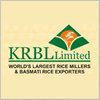Filter interviews by
Hatsun Agro Product Technical Officer Interview Questions and Answers
8 Interview questions
Curd is typically packed at a temperature of around 4-6 degrees Celsius.
Curd is usually packed at a refrigerated temperature to maintain freshness and prevent spoilage.
The ideal temperature for packing curd is between 4-6 degrees Celsius.
Packaging curd at higher temperatures can lead to faster bacterial growth and spoilage.
Maintaining a cold chain during transportation is crucial to preserve the quality of packed ...
Milk is typically packaged at a temperature of around 4 degrees Celsius.
Milk is usually packaged at a temperature of 4 degrees Celsius to maintain freshness and quality.
Packaging milk at a lower temperature helps to slow down bacterial growth and extend its shelf life.
Some milk packaging processes involve pasteurization, which heats the milk to a higher temperature before cooling it down for packaging.
Curd is typically packed at room temperature.
Curd is usually packed at room temperature to maintain its freshness and texture.
Packing curd at a higher temperature can lead to spoilage and growth of harmful bacteria.
On the other hand, packing curd at a lower temperature can affect its taste and consistency.
Milk is typically packed at a temperature of around 4 degrees Celsius to ensure freshness and prevent bacterial growth.
Milk is usually packed at a temperature of 4 degrees Celsius to maintain its quality and freshness.
Packaging milk at a lower temperature helps to slow down bacterial growth and extend its shelf life.
Temperature-controlled packaging facilities are used to ensure that milk is stored and packed at th...
Curd milk heat treatment is done at 90 degrees Celsius to kill harmful bacteria and enzymes.
Heating milk to 90 degrees Celsius helps to destroy pathogenic bacteria present in the milk.
It also denatures enzymes that can cause spoilage and affect the quality of the curd.
The heat treatment ensures the safety and shelf life of the curd product.
Lower temperatures may not effectively kill all the bacteria, while higher ...
pH of milk is around 6.5
The pH of milk typically ranges from 6.5 to 6.7
The pH level of milk can vary depending on factors such as temperature and processing methods
Milk with a lower pH may indicate spoilage or contamination
Heat treatment temperatures for milk and milk products
Heat treatment is used to kill harmful bacteria and extend the shelf life of milk and milk products
The temperature and duration of heat treatment vary depending on the specific product
Common heat treatment methods include pasteurization and sterilization
Pasteurization typically involves heating milk to a temperature between 63-72°C for a specified time, such as...
HTST treatment holding time for milk is the time duration for which milk is held at a specific temperature to kill harmful bacteria.
HTST stands for High-Temperature Short-Time treatment.
The holding time for milk during HTST treatment is usually around 15-20 seconds.
The temperature at which milk is held during HTST treatment is around 72°C (161°F).
Hatsun Agro Product Technical Officer Interview Experiences
5 interviews found
I appeared for an interview in Jan 2025.
(2 Questions)
- Q1. At what temperature milk is packed
- Ans.
Milk is typically packed at a temperature of around 4 degrees Celsius to ensure freshness and prevent bacterial growth.
Milk is usually packed at a temperature of 4 degrees Celsius to maintain its quality and freshness.
Packaging milk at a lower temperature helps to slow down bacterial growth and extend its shelf life.
Temperature-controlled packaging facilities are used to ensure that milk is stored and packed at the cor...
- Q2. At what temperature curd is packed
- Ans.
Curd is typically packed at room temperature.
Curd is usually packed at room temperature to maintain its freshness and texture.
Packing curd at a higher temperature can lead to spoilage and growth of harmful bacteria.
On the other hand, packing curd at a lower temperature can affect its taste and consistency.
(2 Questions)
- Q1. At what temperature milk is packed
- Ans.
Milk is typically packed at a temperature of around 4 degrees Celsius to ensure freshness and prevent bacterial growth.
Milk is usually packed at a temperature of 4 degrees Celsius to maintain its quality.
This temperature helps to slow down bacterial growth and extend the shelf life of the milk.
Packaging milk at a lower temperature also helps to preserve its nutrients and flavor.
For example, pasteurized milk is often pa...
- Q2. At what temperature curd is packed
- Ans.
Curd is typically packed at room temperature.
Curd is usually packed at room temperature to maintain its freshness and texture.
Packing curd at a higher temperature can lead to spoilage and growth of harmful bacteria.
On the other hand, packing curd at a lower temperature can affect its taste and consistency.
(2 Questions)
- Q1. At what temperature milk is packed
- Ans.
Milk is typically packed at a temperature of around 4 degrees Celsius to maintain freshness and quality.
Milk is usually packed at a temperature of 4 degrees Celsius to ensure it stays fresh and maintains its quality.
Packaging milk at a lower temperature helps to slow down bacterial growth and extend its shelf life.
Temperature control is crucial in the dairy industry to prevent spoilage and ensure product safety.
- Q2. At what temperature curd is packed
- Ans.
Curd is typically packed at room temperature.
Curd is usually packed at room temperature to maintain its freshness and texture.
Packing curd at a higher temperature can lead to spoilage and growth of harmful bacteria.
On the other hand, packing curd at a lower temperature can affect its taste and consistency.
(2 Questions)
- Q1. At what temperature is milk typically packaged?
- Ans.
Milk is typically packaged at a temperature of around 4 degrees Celsius.
Milk is usually packaged at a temperature of 4 degrees Celsius to maintain freshness and quality.
Packaging milk at a lower temperature helps to slow down bacterial growth and extend its shelf life.
Some milk packaging processes involve pasteurization, which heats the milk to a higher temperature before cooling it down for packaging.
- Q2. At what temperature is curd typically packed?
- Ans.
Curd is typically packed at a temperature of around 4-6 degrees Celsius.
Curd is usually packed at a refrigerated temperature to maintain freshness and prevent spoilage.
The ideal temperature for packing curd is between 4-6 degrees Celsius.
Packaging curd at higher temperatures can lead to faster bacterial growth and spoilage.
Maintaining a cold chain during transportation is crucial to preserve the quality of packed curd.
(1 Question)
- Q1. PH of milk is
- Ans.
pH of milk is around 6.5
The pH of milk typically ranges from 6.5 to 6.7
The pH level of milk can vary depending on factors such as temperature and processing methods
Milk with a lower pH may indicate spoilage or contamination
I applied via Referral and was interviewed in Jul 2023. There were 3 interview rounds.

3 parts
Part a -attention to details -25 questions-5mins
Part b-logical reasoning -15 questions-15mins
Part c- ques related to percentage distance calculation -10 questions -15 mins
(1 Question)
- Q1. Esl milk, types of heat treatment,pasteurisation,milk reception
Interview Preparation Tips
I applied via Campus Placement and was interviewed before May 2022. There were 4 interview rounds.

(4 Questions)
- Q1. Temperatures for heat treatment of milk and milk products
- Ans.
Heat treatment temperatures for milk and milk products
Heat treatment is used to kill harmful bacteria and extend the shelf life of milk and milk products
The temperature and duration of heat treatment vary depending on the specific product
Common heat treatment methods include pasteurization and sterilization
Pasteurization typically involves heating milk to a temperature between 63-72°C for a specified time, such as 15-3...
- Q2. Holding time time for milk and milk products
- Q3. Htst treatment holding time for milk
- Ans.
HTST treatment holding time for milk is the time duration for which milk is held at a specific temperature to kill harmful bacteria.
HTST stands for High-Temperature Short-Time treatment.
The holding time for milk during HTST treatment is usually around 15-20 seconds.
The temperature at which milk is held during HTST treatment is around 72°C (161°F).
- Q4. 15 sec of time
(1 Question)
- Q1. Why curd milk heat treatment is done for 90 degrees celcius
- Ans.
Curd milk heat treatment is done at 90 degrees Celsius to kill harmful bacteria and enzymes.
Heating milk to 90 degrees Celsius helps to destroy pathogenic bacteria present in the milk.
It also denatures enzymes that can cause spoilage and affect the quality of the curd.
The heat treatment ensures the safety and shelf life of the curd product.
Lower temperatures may not effectively kill all the bacteria, while higher tempe...
(2 Questions)
- Q1. Give your introduction
- Ans.
I am a Technical Officer with expertise in various technical areas.
I have a strong background in computer science and engineering.
I have experience in managing and troubleshooting technical systems.
I am skilled in programming languages such as Java, C++, and Python.
I have worked on projects involving network administration and cybersecurity.
I am familiar with hardware and software installation and maintenance.
I have ex...
- Q2. What salary you want
- Ans.
I am open to discussing salary based on the responsibilities and requirements of the position.
I am flexible and open to negotiation.
I am looking for a salary that is competitive within the industry.
I would like to be compensated fairly for my skills and experience.
I am interested in discussing the benefits package as well.
I applied via Campus Placement and was interviewed in Dec 2021. There were 4 interview rounds.
Interview Questionnaire
2 Questions
- Q1. About Inplant Training
- Q2. About processing of milk
Interview Preparation Tips
Interview Questionnaire
4 Questions
- Q1. You should know about what you have updated in the resume & make yourself strong in the basics.
- Q2. Freshers need to know the processes in general & experienced candidates will be asked to explain their previous organisation’s work.
- Q3. Problem solving skills.
- Q4. No one has gone to that much deep.
Top trending discussions






Interview questions from similar companies


(1 Question)
- Q1. Many Question related Dairy Technology
Personal Details
Interview Preparation Tips

I applied via Recruitment Consultant and was interviewed in Oct 2021. There was 1 interview round.
Interview Questionnaire
1 Question
- Q1. Knowledge about all equipments you have worked in the section.
Interview Preparation Tips

I applied via Approached by Company and was interviewed before Feb 2021. There was 1 interview round.
(4 Questions)
- Q1. What are your salary expectations?
- Q2. Share details of your previous job.
- Q3. What are your strengths and weaknesses?
- Ans.
I excel in communication and problem-solving, but I sometimes struggle with delegation and perfectionism.
Strength: Strong communication skills - I effectively convey ideas and foster collaboration among team members.
Strength: Problem-solving ability - I enjoy tackling challenges and have successfully led projects that required innovative solutions.
Weakness: Difficulty with delegation - I tend to take on too much myself...
- Q4. Tell me about yourself.
Interview Preparation Tips

Interview Questionnaire
1 Question
- Q1. Related to equipment and working

I applied via Walk-in

(3 Questions)
- Q1. Any technical questions
- Q2. Dg, Transformer, VCB, ACB,
- Q3. LT Panel All Questions
(3 Questions)
- Q1. Technical Questions
- Q2. Dg Transformer All types breaks
- Q3. All types Breaks
- Ans.
Different types of brakes used in engineering applications.
Mechanical brakes: Disc brakes, Drum brakes
Hydraulic brakes: Hydraulic disc brakes, Hydraulic drum brakes
Electromagnetic brakes: Eddy current brakes, Magnetic particle brakes
Pneumatic brakes: Air brakes, Vacuum brakes
Friction brakes: Single-servo brakes, Dual-servo brakes
Hatsun Agro Product Interview FAQs
Tell us how to improve this page.
Hatsun Agro Product Interviews By Designations
- Hatsun Agro Product Technical Officer Interview Questions
- Hatsun Agro Product Assistant Engineer Interview Questions
- Hatsun Agro Product Senior Associate Interview Questions
- Hatsun Agro Product Quality Assurance Supervisor Interview Questions
- Hatsun Agro Product Safety Officer Interview Questions
- Hatsun Agro Product Business Development Executive Interview Questions
- Hatsun Agro Product Associate Electrical Engineer Interview Questions
- Hatsun Agro Product Lab Chemist Interview Questions
- Show more
Interview Questions for Popular Designations
Overall Interview Experience Rating
based on 5 interview experiences
Difficulty level
Duration
Interview Questions from Similar Companies
Hatsun Agro Product Technical Officer Reviews and Ratings
based on 46 reviews
Rating in categories
|
Technical Officer
200
salaries
| ₹1.9 L/yr - ₹5.2 L/yr |
|
Deputy Officer
179
salaries
| ₹2.1 L/yr - ₹6.5 L/yr |
|
Business Development Executive
155
salaries
| ₹1.6 L/yr - ₹4.9 L/yr |
|
Officer
135
salaries
| ₹2.5 L/yr - ₹6.5 L/yr |
|
Sales Development Executive
123
salaries
| ₹1.6 L/yr - ₹4.5 L/yr |

PepsiCo

Heritage Foods

Parag Milk Foods

Triveni Engineering & Industries
- Home >
- Interviews >
- Hatsun Agro Product Interview Questions












